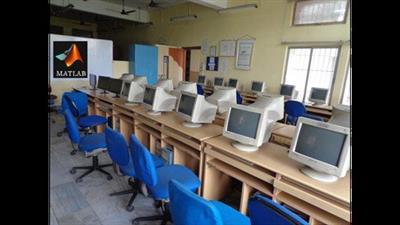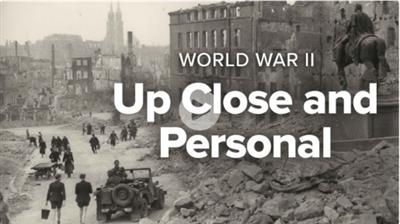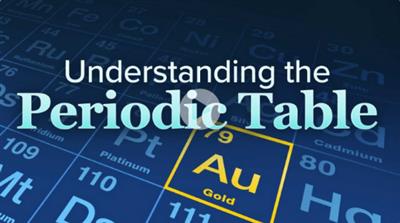
 |
 MP4 | Video: h264, 1280x720 | Audio: AAC, 44.1 KHz Language: English | Size: 433 MB | Duration: 1h 16m What you'll learn  MP4 | Video: h264, 1280x720 | Audio: AAC, 44.1 KHz, 2 Ch Genre: eLearning | Language: English + srt | Duration: 6 lectures (2h 6m) | Size: 823.4 MB Introduction to 5G Drive Test and Troubleshooting  h264, yuv420p, 1280x720 | ENGLISH, 22050 Hz, 2channel | 11h 34mn | 9.71 GB World War II was one of the defining moments in modern history, a global conflagration that transformed the world through battles, shifting alliances, and horrors unlike anything in recorded history. The story of the war is often told as a series of great campaigns by famous generals, dramatic turning points, and cataclysmic combat. But what about the millions of ordinary people-the citizens and soldiers whose names most of us don't know but whose impact rippled through every aspect of the war? Step into the shoes of these remarkable men and women in World War II: Up Close and Personal. Your lecturer is Dr. Keith Huxen, a historian and project director at The Henry M. Jackson Foundation. In 24 engrossing lessons, Keith takes you into the story of ordinary people doing extraordinary things-bringing history to life through the flesh and blood of battles, the diplomatic skirmishes, or beleaguered civilians eking out their next meal while avoiding the dangers all around them.  h264, yuv420p, 1280x720 | ENGLISH, 22050 Hz, 2channel | 12h 27mn | 10.5 GB The basic elements that make up all matter on Earth have existed from the planet's earliest days, but it wasn't until the 18th century that debates emerged about the mapping and classification of such elements. After a series of new and exciting discoveries in the bustling field of chemistry-including nitrogen in 1772, followed by oxygen in 1774-a sense of urgency captured the scientific community. What were scientists to make of these "new" elements? And why did they so often struggle to reach consensus in the discovery of these crucial world-building materials? The story of the periodic table of elements is, in some ways, a map of the history of chemistry and scientific classification of matter. By the late 18th century, the desire to organize and thus better understand our physical world was not a new phenomenon. The ancient Greek philosopher, Aristotle, sought to categorize living beings into two groups-"blooded" and "bloodless". In the 1730s, the Swedish botanist, Carl Linnaeus, developed a naming system that sorted live organisms into a breadth of categories. What ultimately emerged from 18th-century debates about the classification of elements was a decision to establish a similar set of standards: the qualities, properties, and behaviors of elements.  h264, yuv420p, 1280x720 | ENGLISH, 22050 Hz, 2channel | 6h 01mn | 5.06 GB Humans are social animals. We don't need science to tell us that because we know it instinctively-we look to make friends even in our youngest years and feel safer and happier when we're connected to others. In fact, neuroscientific research has shown that our desire for social connection is no less biologically based than our need for food or sleep. The human brain is, quite literally, wired for social connection, and our current technology taps into that need for connection through social media. Throughout history, however, the technologies we've developed to bring us closer together and make our ideas more accessible have not always been welcomed. Fear of social change has been a common response to the development of life-altering technologies like the printing press and the telegraph, for example, and many people have similar concerns about social media today. Nevertheless, with more than 100 websites and apps to help us meet one of our most basic human communication needs, social media is here to stay.  Video: MPEG4 Video (H264) 1280x720 (480:263) 30fps 1548kbps | Audio: AAC 44100Hz stereo 128kbps Genre: eLearning | Duration: 13.5 hrs | Language: English | File size: 9.8 GB Level 2 design classe from Rhino 3D Tutorials.  MP4 | Video: h264, 1280x720 | Audio: AAC, 44.1 KHz, 2 Ch Skill Level: Intermediate | Genre: eLearning | Language: English + srt | Duration: | Size: 306.2 MB Our fast-paced economy leads to fierce competition to find, retain, and grow the smartest and most creative team members, the people who contribute more than expected, the high potentials. In this course, Bonnie Hagemann, CEO of EDA, Inc., explains the value of high potentials and how you can identify, hire, and retain them effectively. Bonnie defines what it means to be a high potential and why all leaders need to treat growing and identifying talent as a key part of their job. She discusses ways to identify internal high potentials and scout them externally. Bonnie steps you through how to sign and onboard high potentials in the gig economy, then goes over development techniques and ways to build an environment conducive to attracting and retaining high potentials.  MP4 | Video: h264, 1920x1080 | Audio: AAC, 44.1 KHz, 2 Ch Genre: eLearning | Language: English | Duration: 40m | Size: 757.8 MB Use FastAPI to expose an HTTP API for fast live predictions using an ONNX Machine Learning Model. FastAPI is a Python web framework that provides easy development of documented HTTP APIs by offering self-documented endpoints with Swagger - a tool to describe, document, and use RESTful web services.  Video: .MP4, AVC, 1920x1080, 30 fps | Audio: English, AAC, 44.1 KHz, 2 Ch | Duration: 9h 42m | 18.8 GB Instructor: Gordon Ryan The best no-gi grappler on Earth, Gordon "The King" Ryan, shares his secrets for creating action and attacking opponents from seated open guard.  John Danaher | Duration: 9h 12m | Video: H264 1280x720 | Audio: AAC 44,1 kHz 2ch | 10,4 GB | Language: English Develop the ability to create pressure from open guard and attack with modern strategy and technique from Professor John Danaher! * Professor Danaher breaks down the main elements of his student's guard success, including insights around leg locking that set their style apart from the rest of the field |